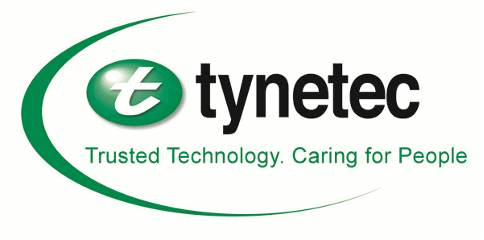The ATHENE Project Partners
The ATHENE project partners are:
Tynetec
With over 33 years' experience in the design and manufacture of Warden Call Systems, Telecare & Telehealth Solutions, Access Control Systems and Wireless Nurse Call Products, it's no wonder that more and more customers are turning to Tynetec as their No.1 choice.
Tynetec's range of hardware and software is all designed in house by a dedicated research and development team and all manufacturing is carried out at the company's headquarters in Blyth, Northumberland. The company supplies equipment to hundreds of Local Authorities and Housing Associations across the UK and beyond. Through the AidCall division, the organisation continues to increase its sales of Wireless Nurse Call Systems into the Hospital and Care Home Markets.
Tynetec focuses on delivering outstanding, innovative products that clearly set the standards for others to follow. Through consumer insight, customer research and cutting edge design, Tynetec are able to deliver tomorrow's technology today.

Philips Research
Royal Philips Electronics is a diversified health and well-being company, focused on improving people's lives through meaningful innovation in the areas of Healthcare, Consumer Lifestyle and Lighting. They combine their unique clinical expertise with insights to develop solutions that deliver value throughout the care cycle: from disease prevention to screening and diagnosis, through to treatment, monitoring and health management. They are there wherever care is given - in the hospital or at home. Their scientists and engineers deliver new technologies, applications and service models to enhance and expand the Philips product portfolio for the future. Philips Research Cambridge is part of a global research organisation providing technology options and innovations in the area of health and well-being to help Philips introduce meaningful innovations.

Graphnet Health
Graphnet offers a wide range of quality customer focussed services including:
Training: Graphnet has been providing XML in Healthcare and specific product training for many years. Standard and bespoke courses can be delivered to meet specific organisational needs. Training venues are flexible and customers can choose from Graphnet's Milton Keynes offices, their own offices or other venues across the UK.
To date courses have been commissioned by the NHSIA, NHSiS, DoH as well as Strategic Health Authorities and individual Trusts.
Design & Development: Graphnet can provide full design and development services. Committed to maintaining a technical lead, Graphnet adopts and incorporates new technologies and methodologies (clinical and IT) as they arise. Specific clinical and administrative system design and development work can include concept development and testing, workflow/process and application design, establishing and developing integration and interfaces with other systems and information sources, screen layouts and documentation.
Support and Maintenance: Graphnet operates with formal support and maintenance contracts and procedures. With a team of support engineers and comprehensive systems of communication, Graphnet can offer a range of support up to 24 hours/7 days a week.
Additional Services:
Consultancy & Business Analysis: Graphnet has a long history in undertaking commissioned consultancy projects. These have included development of concepts, system specification, pilot and demonstration projects, surveys and communication campaigns. Commissions have been strategic, technical and academic and have come from central government, NHS (central), Authorities, Trusts and commercial organisations.
System Management: In addition to support and maintenance, Graphnet can also manage part or all of the systems that have been implemented on a contractual basis. Managed systems contract options can include full management and stabling of off-site servers, managing and maintaining on-site servers, all software or just the Graphnet software.
Legacy Conversion & Scanned Documents: Graphnet have undertaken a number of small and large scale legacy data conversions. Often these projects are to retrieve and protect data from older, unreliable systems, to reduce paper document and film storage.
